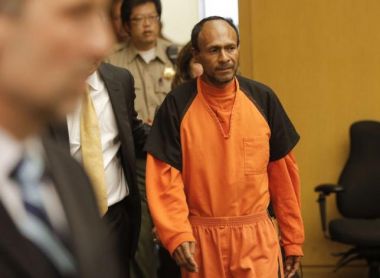US House bucks White House threat, OKs bill cracking down on 'sanctuary cities'

Defying a veto threat from the White House, the US House of Representatives has approved a bill that will punish "sanctuary cities" that fail to cooperate with federal immigration authorities in rooting out such illegal aliens.
Sanctuary city is the term given to localities in the US that have policies designed to shelter illegal immigrants.
By a vote of 241-179, House lawmakers agreed to prevent sanctuary cities from receiving law enforcement grants and cut federal funding for states and cities that refuse to cooperate with federal immigration officials.
"Sanctuary city policies needlessly endanger American lives by refusing to honour the federal government's authority to enforce immigration laws," Virginia Rep. Bob Goodlatte said in a statement, according to Fox News.
"Unfortunately, the Obama administration's own foolish policies enable rogue local governments to defy federal immigration laws. All too often, these reckless policies create preventable tragedies," the House Judiciary Committee chair added.
House leaders passed the legislation after undocumented Mexican migrant worker Francisco Lopez-Sanchez, a convicted felon and was deported back to Mexico five times, allegedly shot 32-year-old Kathryn Steinle while she was walking at San Francisco pier on July 1.
A few months before the murder, the US Immigration and Customs Enforcement asked law enforcement agencies to alert them if they planned to release Lopez-Sanchez, who was then facing a marijuana charge in March.
But as soon as the charge was dropped in April, San Francisco City's sheriff department released the Mexican worker without notifying federal authorities, arguing that the city had no ground in holding the suspect any longer.
As early as 1989, a county law has been barring local employees in San Francisco from helping federal officials with immigration investigations or arrests unless required by federal or state law or by a warrant.
This makes San Francisco a "sanctuary city" along with the cities of Los Angeles, New York, Knoxville in Tennessee, and Manchester in New Hampshire that all have similar policies.
Mayors and police chiefs of major cities, who oppose the bill, vowed to undermine efforts by local law enforcement agencies to convince undocumented immigrants to report crimes to police or to serve as witnesses against criminals.
In a letter to congressional leaders, 21 big-city mayors argued that the bill would only make crimes go unpunished as it would only keep undocumented immigrants from coming forward out of fear that the police will turn them in to federal immigration authorities.
"Our cities and counties are home to millions of immigrant residents who live, work and contribute to the vitality of our communities," stated the letter, which was signed by the mayors of Chicago, New York, Baltimore, Philadelphia and others.
"As local leaders, we are uniquely positioned to make the best decisions about serving our residents and ensuring public safety," it added, according to USA Today.
Meanwhile, the White House threatened to veto a bill cracking down on sanctuary cities, saying that the legislation "undermines current administration efforts to remove the most dangerous convicted criminals."
Noting that the anti-sanctuary cities bill fails to enact comprehensive immigration reforms, the Obama administration explained that the President's 2014 executive actions, which focus on deportations of convicted criminals, will be a more effective way to enforce the nation's immigration laws.
"The Congress should give (the program) a chance to work, instead of displacing that collaborative approach — which prioritises the worst offenders — with the coercive approach of this bill, which makes no such differentiation," the White House said in a statement, according to the Hill.
The Senate has yet to schedule a vote on the first immigration bill that Congress has taken up this session.











